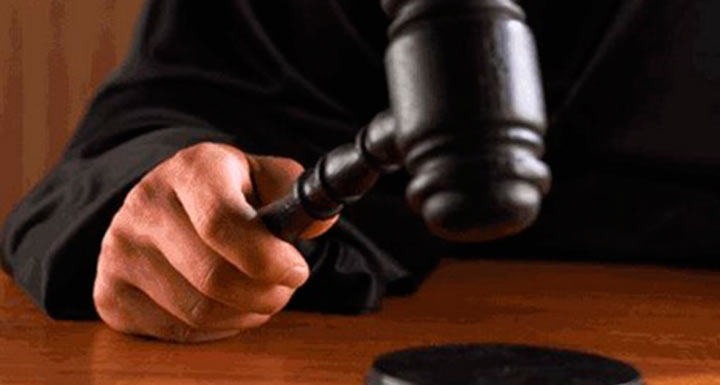
How the First District Court of Appeal ignored Florida voters
Voters across Florida cast ballots in November 2000 to say whether they wanted to continue electing most of their circuit and county court judges or would let the governor appoint them.
Election was the overwhelming favorite everywhere. In Duval, Nassau and Clay counties, which comprise the Fourth Circuit, it was the choice of 69.3 percent of the voters.
This week, Florida’s First District Court of Appeal had a message for them:
Drop dead.
The split decision in Trotti v. Detzner gives Florida Gov. Rick Scott the power to appoint the replacement for a Jacksonville judge who didn’t seek re-election and will serve all but the last working day of his term. By giving up that day, he was contriving to have Scott pick his successor.
A reasonable reading of the Florida Constitution and of the Florida Supreme Court precedents involved would have a different outcome.
That’s all plaintiff David Trotti asked for — a reasonable outcome — in his suit asking the courts to order Secretary of State Ken Detzner to put the judgeship back on the ballot.
But reasonableness is an “arbitrary” process, said the court, “and cannot constitute a duty that can be compelled by mandamus.”
You read that right. It is too much, in the eyes of the law — or at least that court — to demand that a public official be reasonable.
The significance of such judicial witchcraft is often best told by the dissent.
In this case, Judge Phil Padovano’s dissent nailed it.
“The effect of the court’s decision is to bestow upon an individual judge the power to block an election by resigning just short of the end of his or her term in office. I do not think this decision is required as a matter of law, nor do I think that it is wise…”
In a landmark 1974 case, Padovano argued, the Florida Supreme Court “made it clear that the appointment process is to be used only when necessary to fill a seat that will be unoccupied.”
In this case, the seat of retiring Judge Donald R. Moran Jr. will be unoccupied for only one day.
One day!
“…I am confident,” Padovano wrote, “that there is no authority for the proposition that the rights of voters can be overcome by a manufactured vacancy like the one we have before us in this case.”
Rebutting the majority’s concern over “arbitrary results,” he wrote that judges “are well-equipped to make decisions like those — one could argue that is precisely what we are here to do. …”
Padovano pointed out how the precedent could be abused. Two judges are retiring at the end of their terms. One likes the governor, the other doesn’t. The governor’s pal does what Moran did so that the governor can pick his successor. The other alerts the local bar that his seat will be open and doesn’t file for re-election. An election ensues.
It may be pertinent to mention here that the judges in the majority were appointed by Republican governors: Clayton Roberts by Charlie Crist, Ronald V. Swanson by Scott. Padovano, by far the senior, was appointed by Democrat Lawton Chiles. And Detzner, who called it wrong to begin with, works at Scott’s pleasure.
Detzner had already accepted Trotti’s qualifying papers for Moran’s seat when the judge informed Scott of his artfully contrived resignation. Detzner told Trotti to switch to a different race and then canceled the election when Trotti refused to budge.
Trotti asked for an immediate ruling from the Florida Supreme Court, which kicked it down to a circuit judge in Tallahassee. He ruled the wrong way too, which doesn’t excuse Roberts and Swanson for agreeing with him. Trotti is trying to get it back before the Supreme Court, but even if he succeeds it’s probably too late to restore the election. Regardless, the court needs to make sure such a dirty trick doesn’t happen again.
Appellate judges have been appointed since 1976, but the governor’s authority to fill seats on the trial bench remained limited to vacancies occurring between elections. There hasn’t been any case nearly like this one.
Election, with all the money-grubbing and pandering it often entails, is normally the worst way to select a judge. Appointment is far better, but not if it’s in the hands of someone like Scott, who has no use for independent-minded judges or for any diversity, whether political or ethnic, in the courts of justice.
(From the: Saint Peters Blog)

